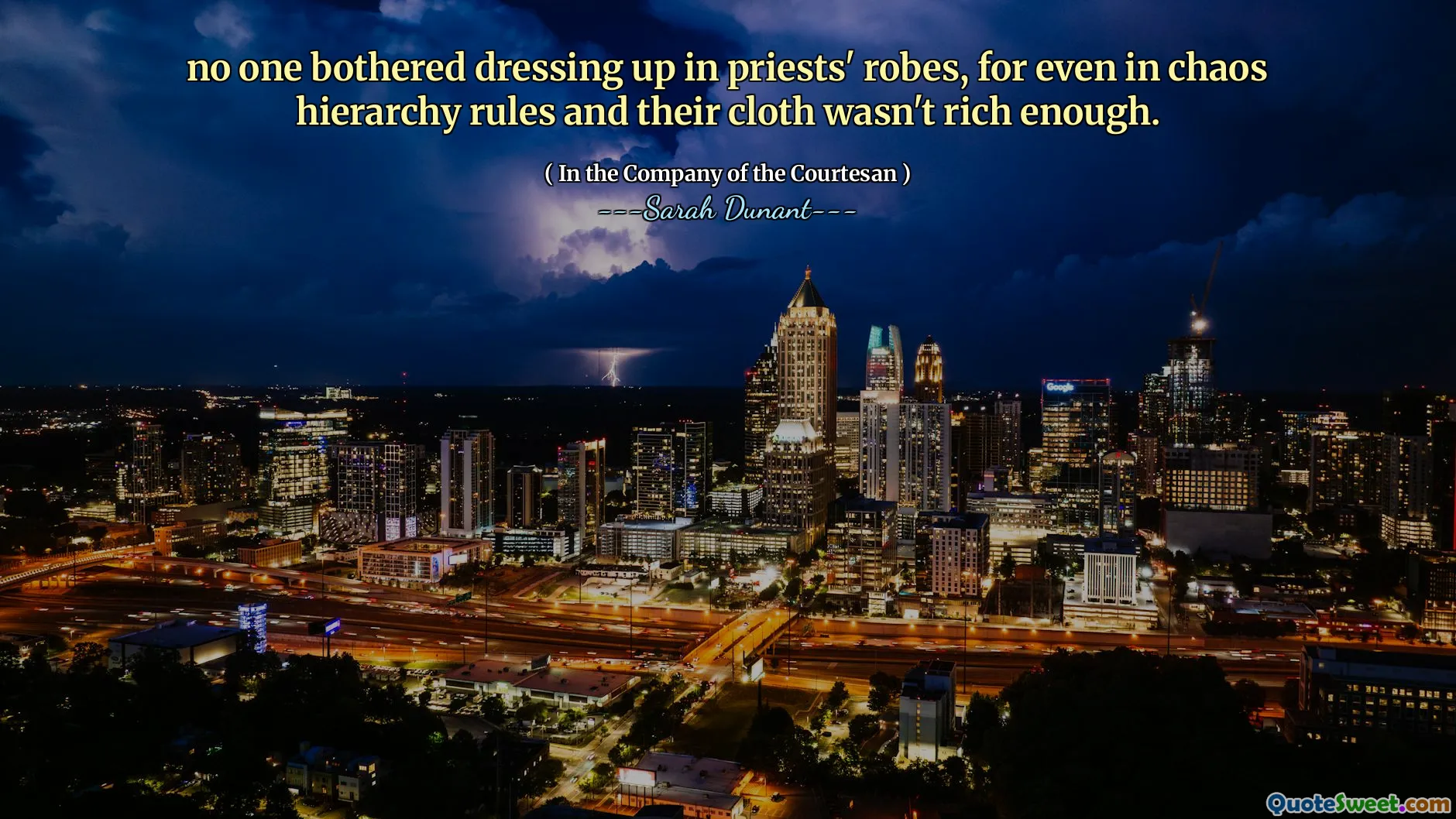
no one bothered dressing up in priests' robes, for even in chaos hierarchy rules and their cloth wasn't rich enough.
This quote underscores the enduring power of societal structures and hierarchies, even amidst chaos and disorder. The imagery of priests' robes, traditionally symbols of authority, sanctity, and respect, suggests that even when external appearances are stripped away or meaningless, the underlying systems of power persist. The remark that these robes 'weren't rich enough' reveals a critique of superficial displays of authority—implying that true power is more than just clothing or exterior symbols. In moments of upheaval, chaos often levels the playing field, but this quote suggests that the instinct to establish roles and hierarchies remains ingrained in human nature. The willingness to abandon formal attire in chaos but still cling to the concept of hierarchy illustrates that power structures are resilient and adaptable; they are embedded so deeply in societal fabric that they outlast specific symbols or uniforms. Philosophically, it hints at the idea that authority is less about the external tokens of power and more about the perceptions and social agreements that sustain them. This perception can be both enlightening and troubling—it means that even without formal structures, people might recreate or cling to them because these hierarchies satisfy human needs for order, meaning, and control amid uncertainty. The quote also touches on the idea that chaos exposes the gaps, limitations, and superficial nature of societal roles, yet it also shows that human beings tend to uphold these distinctions, perhaps unconsciously, to feel secure. It invites reflection on the nature of authority, authority's reliance on symbols, and what remains when those symbols are absent or meaningless. Fundamentally, power is more intangible than it appears, rooted deep within societal and psychological constructs that persist no matter the circumstances.






